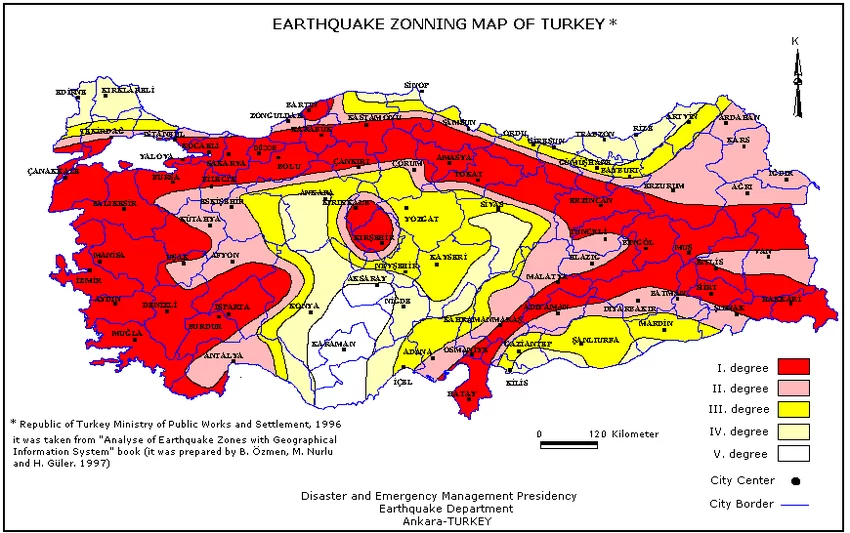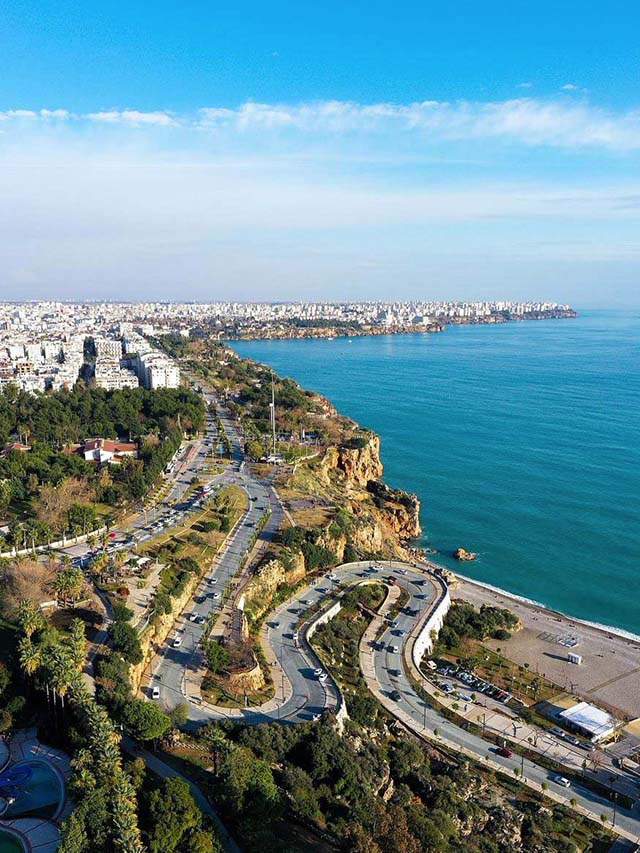
Throughout history, Turkey has been susceptible to frequent and destructive earthquakes. One notable event took place in 526 AD when a formidable earthquake, measuring M 6.9, shook the city of Antioch. The impact was catastrophic, resulting in widespread devastation and a staggering death toll of more than 250,000 individuals. Istanbul, another prominent Turkish city, experienced a similar fate in 1509 when a powerful earthquake struck, causing extensive damage and claiming the lives of thousands. Another significant earthquake occurred in 1999 in Izmit, measuring M 7.4, which resulted in devastating consequences, including the loss of over 17,000 lives and widespread destruction.
Two Consecutive Earthquakes Struck Turkey
In recent days, Turkey has faced challenging circumstances following a powerful earthquake that struck Kahramanmaraş on February 6, 2023, with magnitudes of 7.7 and 7.6. Geologists and seismologists have described this event as one of the most significant natural disasters of the century. The impact of Turkey earthquakes extended to multiple provinces in the southeastern part of the country, including Kahramanmaraş, Gaziantep, Malatya, Diyarbakır, Kilis, Şanlıurfa, Adıyaman, Hatay, Osmaniye, and Adana.
However, despite the gravity of the situation, Turkey has demonstrated its resilience and preparedness in the face of such unexpected calamities. Through the collective efforts of local residents and authorities, a robust safeguarding mindset has been established over time, considering Turkey’s geographical context within an earthquake-prone zone. The response to this earthquake has been swift, with both local and global organizations taking proactive measures to assist the affected communities and provide relief to the victims. Synchronized rescue operations continue to prioritize the safety and well-being of survivors.
Notably the remarkable unity displayed by everyone during these difficult circumstances is truly inspiring. The people of Turkey have come together, demonstrating solidarity and support for one another as they navigate through the aftermath of this devastating event.
Is Turkey Safe for Real Estate Investment?
Despite recent seismic events, Turkey continues to offer a secure environment for real estate investment. While the presence of two major faults in the region increases the likelihood of earthquakes, the government has taken significant steps to ensure the safety and resilience of buildings. Strict building standards and regulations have been enforced in certain areas, enhancing their ability to withstand seismic activity.
Moreover, the mandatory requirement for earthquake insurance, applicable to both residential and non-residential properties, alleviates the financial burden on property owners in the event of damage. This proactive measure demonstrates the government’s commitment to mitigating risks and providing support to real estate investors.
Additionally, Turkey is embracing innovative technologies to enhance earthquake preparedness. Advanced tools such as generative artificial intelligence are being employed to improve prediction capabilities and better prepare for future seismic events. This forward-thinking approach showcases Turkey’s dedication to staying at the forefront of seismic research and ensuring the safety and stability of its real estate market.
Earthquakes and Real Estate in Turkey
Despite the occurrence of devastating earthquakes in Turkey over the years, the country’s real estate market has remained largely resilient. This resilience can be attributed to the rigorous construction standards implemented nationwide, which often surpass or align with international building codes. Consequently, the impact of earthquakes on the real estate sector has generally been limited, with localized damage affecting a relatively small percentage of buildings.
The Turkish government has demonstrated a strong commitment to enhancing the earthquake resistance of buildings through various measures. In accordance with esteemed U.S. model building codes and standards, seismic requirements have been systematically updated with the collaborative efforts of skilled architects, engineers, and construction teams. These regulations encompass the incorporation of reinforced concrete frames and shear walls, reinforcing the structural integrity of buildings. Additionally, the utilization of seismic dampers has been encouraged to absorb shocks and mitigate the risk of collapse.
Furthermore, the construction of new buildings in Turkey necessitates adherence to specific seismic and wind resistance codes, ensuring a high level of safety. While it is regrettable that weak construction led to the collapse of approximately 3,450 buildings during past earthquakes, this highlights the urgent need for strengthened safety standards. In the process of rebuilding, it is expected that stricter building codes will be enforced, alongside the rigorous implementation of existing standards, aiming to safeguard the well-being of individuals residing in these regions.
Types of Earthquake Insurances in Turkey
Due to its geographical location in a region prone to seismic and volcanic activities, Turkey faces inherent vulnerability to earthquakes and natural disasters. However, the Turkish government has implemented proactive measures to address this risk. As a legal requirement, all property owners in the country must acquire earthquake insurance, ensuring coverage for potential damages caused by these events. This initiative has resulted in the establishment of the Turkish Catastrophe Insurance Pool (TCIP) in 1999, aiming to minimize the government’s financial exposure to earthquake risks while instilling confidence and trust within the local insurance industry.
The success of the TCIP has served as an inspiration for numerous countries, encouraging them to develop similar programs of their own. In Turkey, there are two primary types of earthquake insurance available: Compulsory Earthquake Insurance (DASK) and optional insurance provided by private insurance companies. DASK specifically covers material damages to buildings and dwellings, including foundations, walls, and elevators, providing financial compensation. The coverage is renewable on an annual basis, with the cost determined by factors such as building type, construction year, number of floors, and earthquake risk group. Additionally, optional insurance can be obtained separately to protect additional property within the premises, such as furniture and valuable possessions.
Is Antalya An Earthquake Zone?
Antalya, a charming city situated on Turkey’s southwestern coast, lies within an active seismic region, which inherently raises the possibility of earthquakes. However, it is important to note that Antalya typically experiences moderate seismic activity, typically reaching magnitudes around 5.0 or lower. Nevertheless, the city has taken significant measures to ensure the safety of its buildings and residents.
The construction of buildings in Antalya adheres to the highest seismic standards, guaranteeing their resilience against potential tremors. Regular inspections and updates are conducted to maintain their structural integrity and ensure continued safety. Furthermore, Antalya boasts a well-established emergency response system, equipped to effectively manage and address any earthquake-related emergencies.
The Turkish government has played a crucial role in promoting safety by enforcing stringent building codes and regulations throughout the country, including in Turkey earthquake Antalya. These measures are designed to enhance the seismic resistance of new constructions, providing an additional layer of protection for residents and properties in the region.
Antalya has also taken proactive steps to enhance preparedness for earthquakes. The city has implemented early warning systems, providing valuable seconds of advanced notice to residents in the event of an earthquake. Regular earthquake drills and educational initiatives are conducted to ensure that the public is well-informed and knowledgeable about appropriate actions to take during seismic events.
Regions situated further away from active fault lines and characterized by stable geological formations, such as solid rock or stable alluvial soils, may generally experience fewer or less severe earthquakes. However, it is crucial to acknowledge that proximity to highly active fault lines can still pose risks of significant seismic events.
At Antalya Home Guide, we prioritize ensuring the well-being and security of our residents. We remain dedicated to offering valuable guidance and resources to make your experience in Antalya real estate as safe and comfortable as possible. Our team of real estate professionals are here to assist you with any inquiries or concerns, ensuring that you feel supported throughout your journey in settling into this beautiful coastal city.
Contact us today to find answers to all your questions about buying real estate in Antalya!









Great post! Thanks for this!